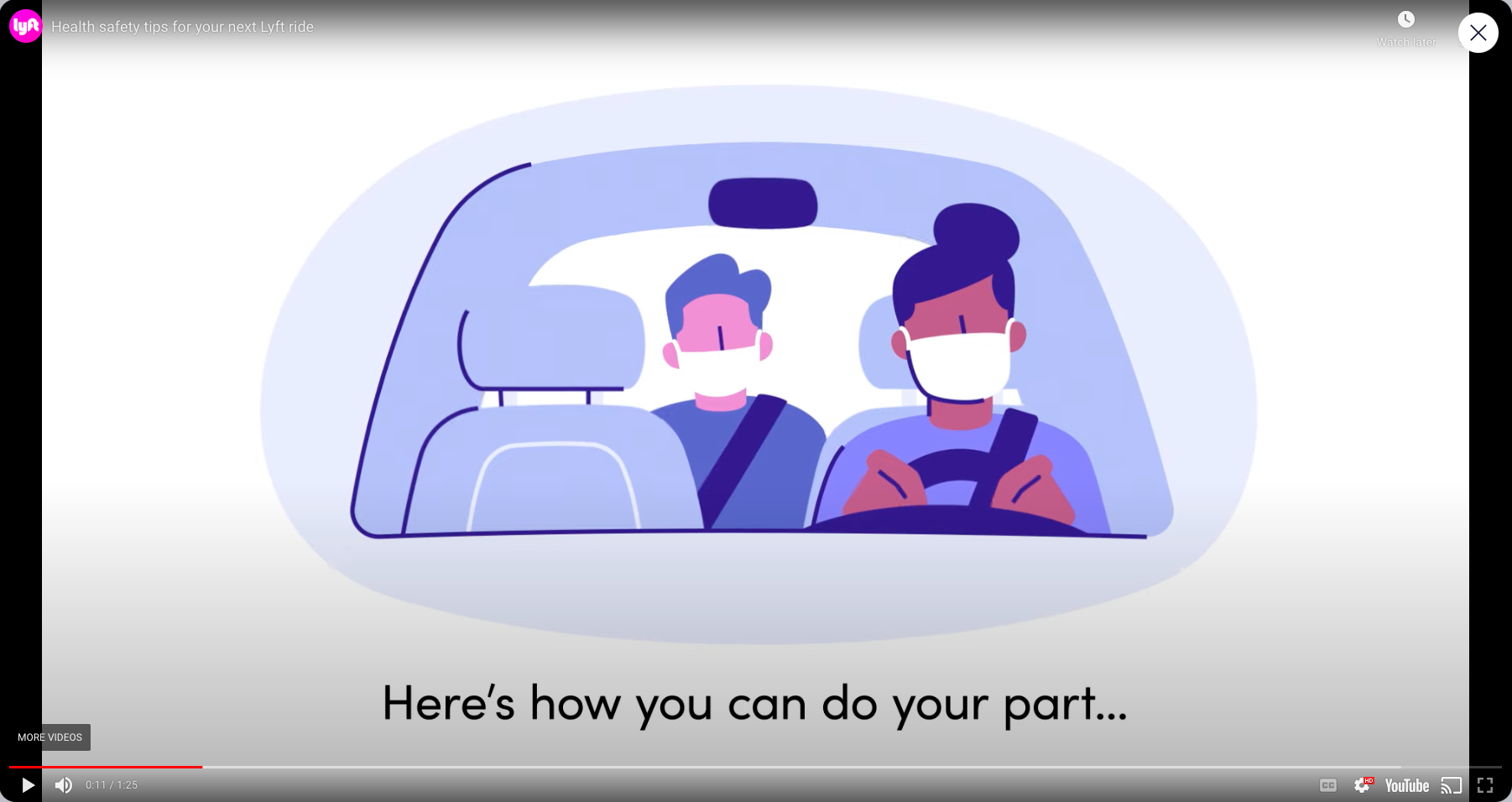
Update: As of June 10, we now require that all riders and drivers stay home if they’re sick, wear face coverings when using Lyft, frequently sanitize hands and car surfaces, leave the front seat empty, and keep windows open when possible. To help everyone prepare to ride during COVID-19, we’ve created safety education for riders and drivers, available now.
As local governments ease stay-at-home orders, Lyft is ramping up efforts to protect riders and drivers — including establishing new health and safety requirements for ridesharing. Today we’re announcing a Health Safety Program with new policies, commitments, and products designed to address the needs of our community during this important time for public health.
Lyft’s Health Safety Program will include:
Personal health certification for drivers and riders
Required face masks for drivers and riders
Health safety education for drivers and riders
Distribution of cleaning supplies and masks for drivers
Personal Health Certification
Before using Lyft, every rider and driver will be required to self-certify that they will wear face masks throughout the ride, are symptom-free, and will follow CDC and local guidelines related to COVID-19.
Specifically, riders and drivers will confirm that:
They will wear a face mask or covering
They will not ride or drive with Lyft if they have COVID-19, think they have it, or have related symptoms
They will keep vehicles clean and sanitize their hands frequently
They will leave windows open when possible and avoid recirculated air when possible
Passengers will not ride in the front seat
Anyone who does not agree to the personal health certification will be unable to request a ride or drive with Lyft.

Health Safety Education
We are also rolling out new Health Safety Education for riders and drivers. The educational content will be based on the Centers for Disease Control and Prevention's (CDC) rideshare guidance and adhere to Canadian health official requirements, and will provide our community with information to best protect themselves and others during rides. Drivers can access the information today in their Lyft app. Corresponding educational content will be rolling out for riders soon.


“With guidance from the CDC, Public Health Agency of Canada, WHO, and local officials, Lyft is taking action to build products and implement policies that help keep riders and drivers safe, as well as empower our community to protect themselves and those around them,” said Angie Westbrock, VP of Global Operations and Head of Lyft’s COVID-19 Response Task Force. “We want these new initiatives to have a meaningful impact and set a new requirement for rideshare health safety.”
Continuing COVID-19 relief efforts
The Health Safety Program builds upon Lyft’s existing COVID-19 relief efforts. So far we’ve dedicated nearly $2.5 million to purchasing hundreds of thousands of bottles of hand sanitizer, masks, and disinfectants for drivers at no cost to them.
Lyft is also committed to providing drivers with new earning opportunities - particularly ones that help the needs of our communities - while ride requests are down. Earlier this month, we launched Essential Deliveries, a pilot initiative where organizations can request on-demand, contact-free delivery of meals, groceries, and other necessities by Lyft drivers, and have committed over $1.5 million in ride credits to communities in need through LyftUp, our comprehensive effort to expand transportation access to those who need it most. Last week, we announced that drivers will have access to One Medical’s Essential Workers program for on-demand virtual care and COVID-19 testing.